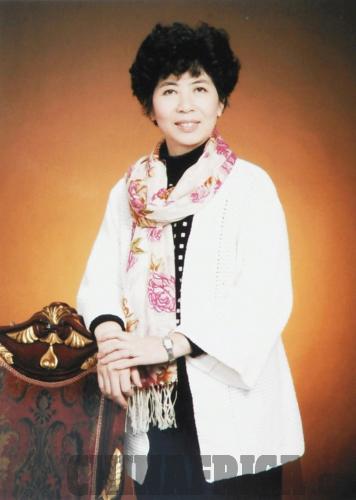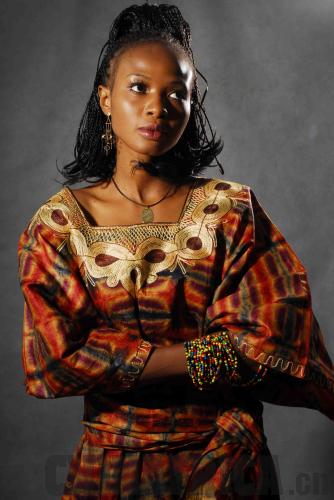|
The status of women within their families and in society has changed greatly around the world. As ministers, scholars, and scientists, women today are playing important roles in fields closed to them in the past. Two successful women from China and Africa share their opinions on this trend with ChinAfrica.

Li Huiying, Professor of the Party School of the Central Committee of the Communist Party of China
Around 2,000 years ago, the status of women in feudal China was very low due to the influence of Chinese culture at that time. The gender-based system in place at that time deprived women of the right to education, work, and political participation. Without these rights, a woman was dependent on her husband and family. She was not economically independent, had no position in politics, and had no access to education.
After the Sino-British Opium War in the mid-19th century, foreign invaders forced China to open its door to the rest of the world. During this period of forced modernization, many things were changed in China. Women were able to hold jobs and receive education. The restriction on primary education was lifted first, and secondary schools and universities gradually followed suit. Women could finally be equal with men in terms of education. Until 1931 legislation passed took into account women's rights to political participation, employment, and education.
Since the founding of the People's Republic of China in 1949, significant changes have been made to the Marriage Law. Many provisions were made to support women's rights, including that men and women enjoy equal rights to inheritance and socially productive work. A woman no longer had to take her husband's surname, and children could take either their father's or their mother's surnames.
In the last century, legislation continued to focus on promoting gender equality. In terms of education, female students were as outstanding as their male counterparts. Women also made great strides when it came to participation in politics. Female ministers and National People's Congress (NPC) deputies became prominent figures. China also established a lot of relevant institutions related to women's issues. In this regard, the Chinese Government has done a lot of work, making significant achievements.
In spite of further achievements in gender equality since China's reform and opening up in the late 1970s, there is still room for improvement, and further steps need to be taken. For example, women account for 21 percent of NPC deputies. But from a global perspective, other countries have developed faster than China has in terms of political participation by women. Therefore, we must take more measures to promote greater participation in politics by women.
Another problem lies in employment. At present, college graduates in China are under enormous pressure to find jobs, and female graduates encounter greater difficulties in this regard. To address gender-based employment discrimination, certain laws should be established or improved. In the past, the relevant legislation tended to offer guidelines, but established no punishments for those who discriminate. More efforts need to be made to improve specific rules for law enforcement, and follow a broader international trend toward establishing gender equity in the workplace.
This awareness of gender equality needs to be further strengthened through education. In primary school textbooks, we still tend to depict jobs according to stereotypes, such as male leaders and scientists, and female kindergarten teachers. Women are still portrayed playing their traditional roles; but in fact, the roles of women in modern society are more diverse than currently shown in textbooks.

Mariatu Kargbo, a Sierra Leonean performer and philanthropist, famous in China, and dedicated to expanding cultural exchanges between China and Africa
There is a song in Henan Opera (a traditional Chinese art form) that I like very much. It is famous for the lyric: "Who said women cannot compete with men?" If you see the best man in the world, there's a woman behind him, so why can women not stand in front too?
In Africa, men have more rights than women because of cultural values. Decades ago, the only option available to African women was to marry and stay at home, cooking and caring for their husbands. Multiple pregnancies and children were a given. In the past, women had ideas but they were kept from sharing them. But in today's world, women can express themselves. I think the change started around 2000 as a new generation came of age. The world is advancing everyday, and women's lives change with it. Everybody is waking up, just as Chinese national anthem calls for people to do with its opening words: "Stand up!" Women are standing up now.
African women today have become more confident. Many African women have jobs and aspire to become more professional. They struggle to maintain their families while advancing their careers. I want to tell African women not to give up. I hope they will ask themselves: "If my husband can become a president, why can't I become president?" Actually, the president of Liberia is Ellen Johnson-Sirleaf, a very strong woman. In Sierra Leone, there are two other examples of powerful women. Both of them are my idols. One is Zainab Hawa Bangura, the former Minister for Foreign Affairs, and current Minister of Health; the other is Victoria Saidu Kamara, Minister of Tourism. They are very strong women, I'm so proud of them, and I admire them very much.
Many African women, like these two ladies, now have so much courage. At times when I was going to do something for my country, many people spoke negatively about me. But these two ladies called me to offer comfort, and told me not to mind the criticism. They taught me that criticism can make me stronger, more focused, and push me forward. They gave me the patience, focus, strength, and courage to do what I can to help people, to help my country, to help China and Africa really know each other, and to promote a lasting friendship between the two.
Of course, women in Africa still encounter problems in school and at work. Women still face discrimnation in certain fields, and sometimes find it difficult to succeed. For example, if women want to get a job in government, they may be told that the position is not open to women. But I hope that women will stay patient; step by step, things are changing. All it takes is persistence.
|